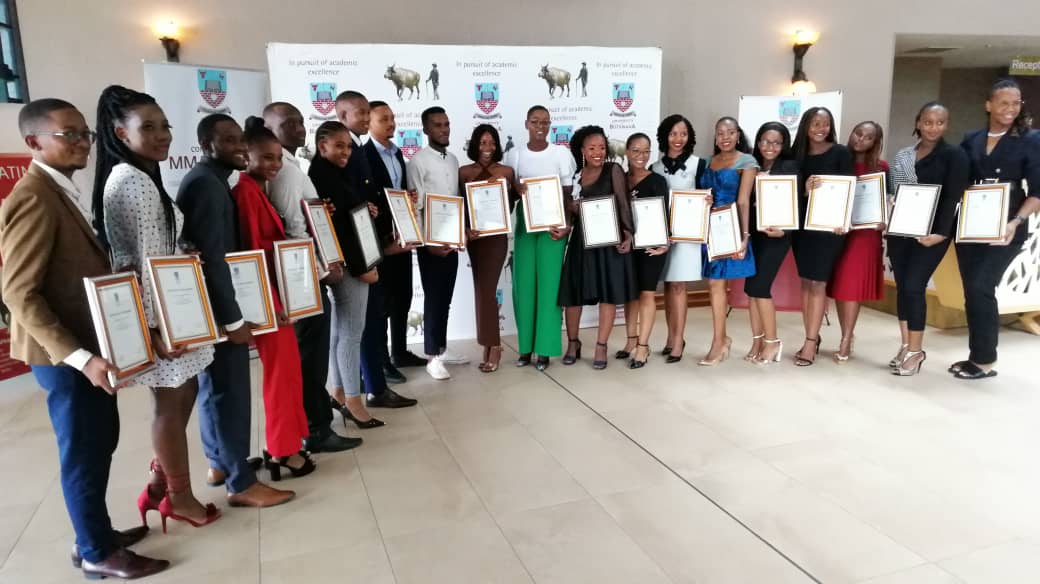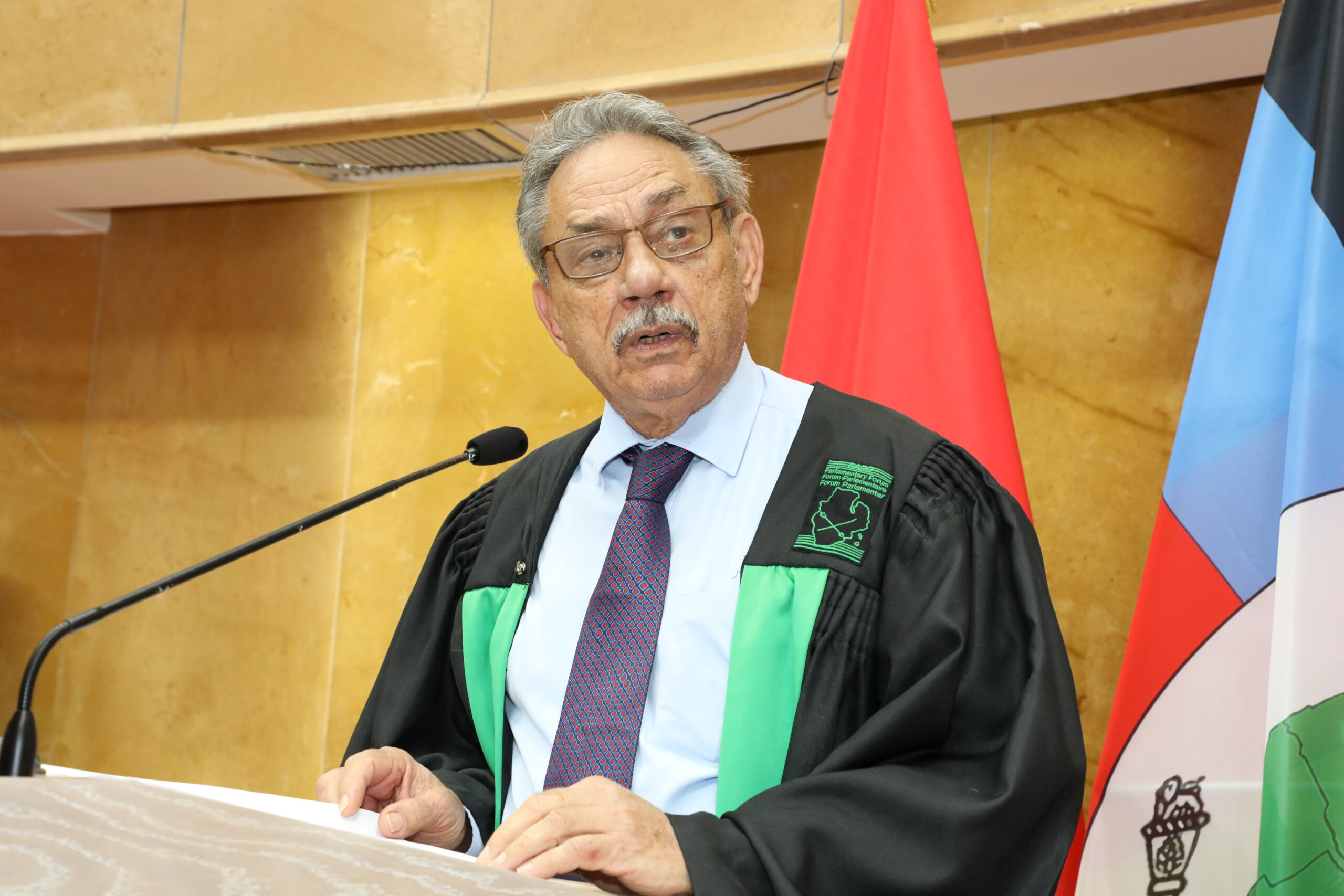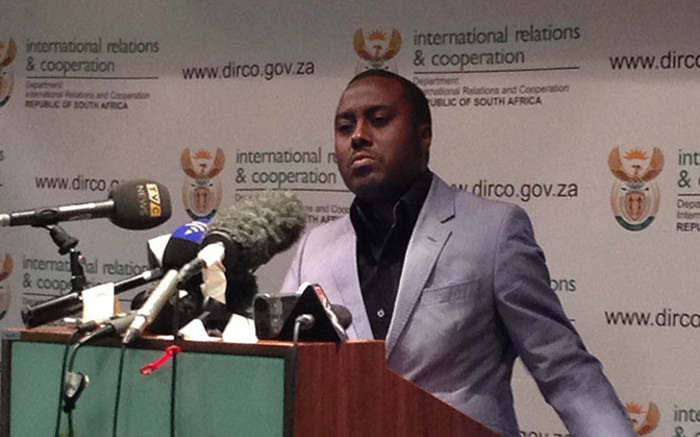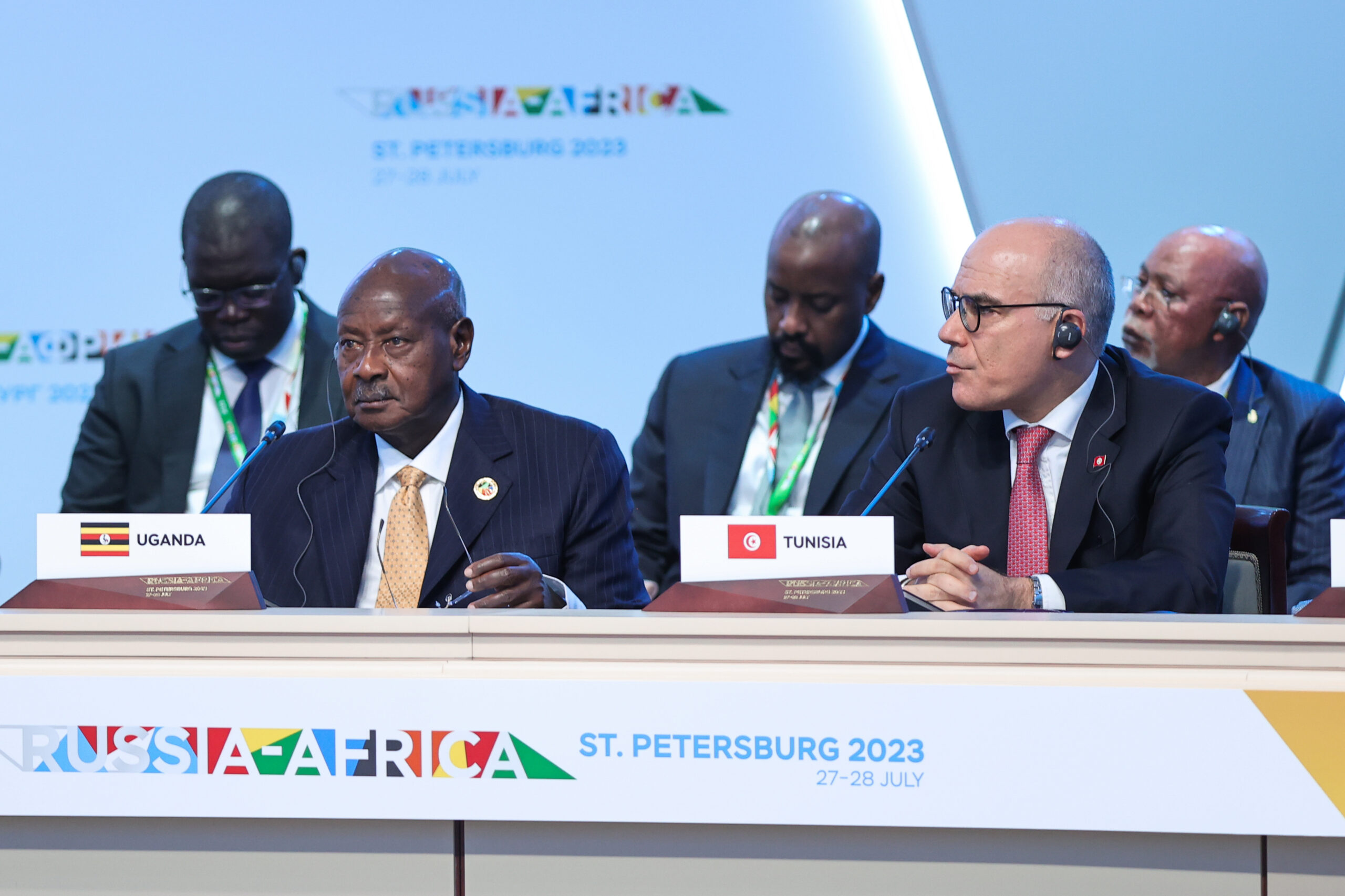
Mr. Adolf Mavheneke, an independent consultant. Photo: Contributed.
By Moses Magadza
A public hearing convened by the SADC Parliamentary Forum’s Standing Committee on Food, Agriculture, Natural Resources and Climate Action (FANRCA) on 18 October 2024 received presentations from different organisations within the SADC region and beyond.
Namibian lawmaker Honourable Phillipus Katamelo chaired the meeting, which was held virtually, under the theme: “Leveraging the Role of SADC Parliamentary Forum in Facilitating Citizen Participation in SADC Regional Integration for Enhanced Accountability and Inclusive Socio-Economic Development and Cohesion.”

The meeting focused on several issues related to climate-smart agriculture and sustainable practices in the SADC region. It explored innovative agricultural techniques that enhance food security and the role of Parliamentary Food Security and Nutrition Alliances in promoting these practices.
It addressed, also, the challenges in natural resource management and biodiversity conservation, identifying barriers to effective climate finance mobilisation.
A public hearing after the meeting discussed various themes, including water security, strategies for disaster risk reduction and climate resilience, renewable energy adoption challenges as well as the impact of targeted climate finance initiatives to facilitate de-carbonation in the region.

Ms Rachel Mundilo manages the Food, Agriculture, Natural Resources and Climate Action (FANRCA) Program at SADC PF and serves as secretary for its Stading Committee.
She said last week’s public hearing attracted 11 submissions from representatives of organisations within and without the SADC region, up from nine submissions made to the committee when it convened another public hearing on 18 October 2023.
Mr Eric Chipeta, the Commonwealth national climate finance adviser for Namibia provided a global overview on climate change finance and severe droughts with increased frequency and intensity, and extreme floods in some instances.
To mitigate these, he said the Commonwealth Climate Finance Access Hub (CCFAH) was helping small and other vulnerable states to secure funding for climate change issues. As of July 2024, the Hub had assisted countries access US$363,55 million in climate finance, he said.
“These funds cover 88 projects in 15 countries including Africa. They include 35 adaption, 12 mitigation and 41 cross-cutting projects,” he noted, adding that major funders are the Green Climate Fund, the Global Environment Facility and the Adaption Fund.
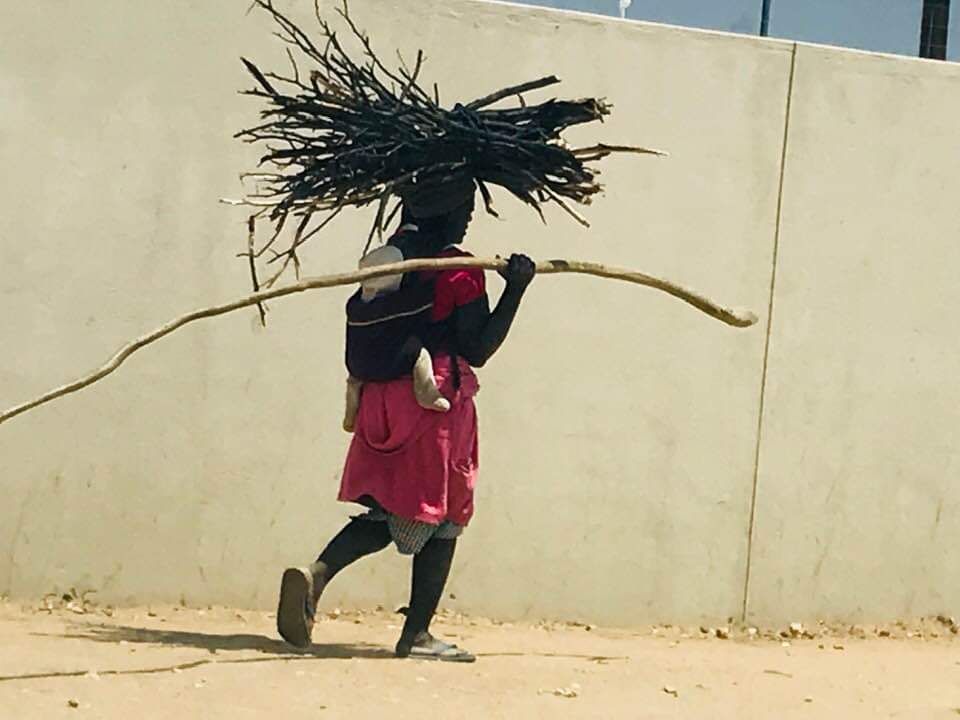
Projects financed include climate smart agriculture, solar-powered irrigation and processing technologies, early warning systems, use of technology and ICT and access to sustainable water resources.
He highlighted challenges in accessing climate finance as limited human resources to identify funding lines and to design, develop and advance project proposals, indebtedness, and fiscal space limitations.
Meeting procedures and standards required by global funds and the multi-step accreditation process often include demanding criteria, he said. Process inconsistency across funding lines, and limited data to support project proposals, were also some of the challenges.
As a solution, the CCFAH provides support to governments to address issues of capacity through training and raising awareness and developing bankable proposals.
The Green Climate Fund was providing project preparation facility to finance project development.
In addition, the Commonwealth Parliamentary Forum on Climate Change was bringing together parliamentarians from across the Commonwealth to discuss climate change.
Mr Nciko wa Nciko of Amnesty International also made a submission and told the committee that his organisation had been closely monitoring the effects of climate change on human rights in Southern Africa.
“The SADC region is one of the hardest hit by climate change and extreme weather events, including severe droughts in southern Angola and Madagascar, intense rainfall in South Africa and frequent cyclones affecting Madagascar and Mozambique, which also impacted inland areas like Botswana, Malawi, South Africa, and Zimbabwe,” he said.
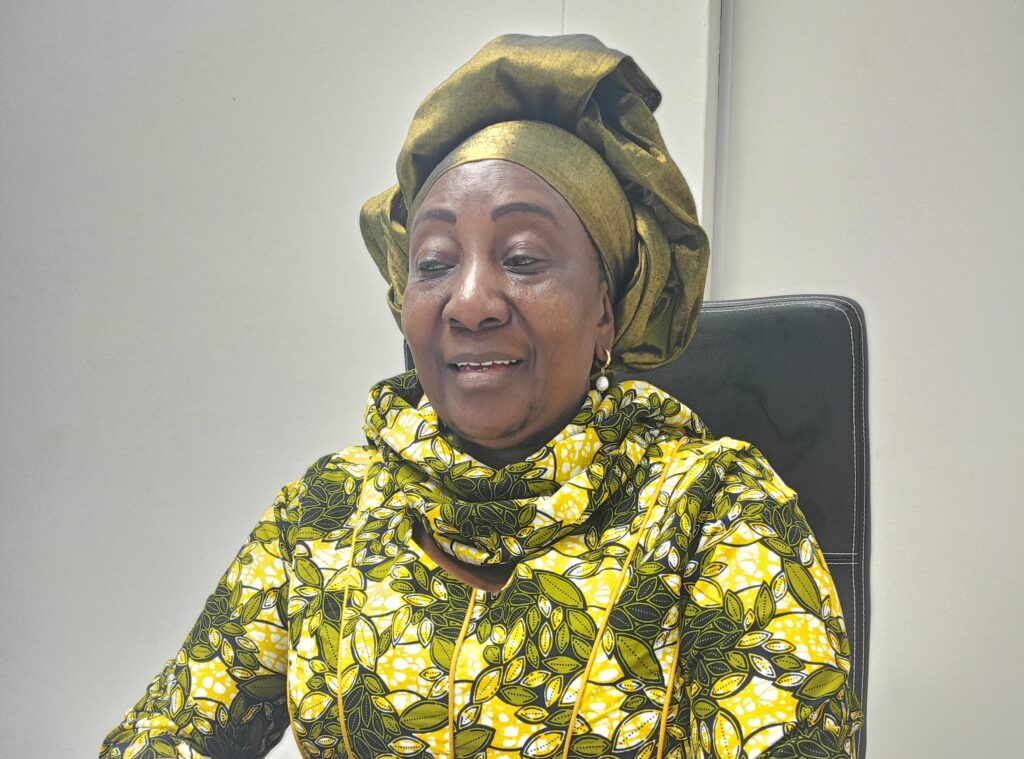
He said this resulted in internal displacement of people leading to numerous human rights violations, including lack of access to healthcare, adequate food, and freedom of movement.
Mr Nciko said there was inadequate legal protection for the victims as the 1998 United Nations Guiding Principles on Internal Displacement do not recognise climate change as a cause of displacement.
“Therefore, they do not offer solutions for those displaced due to climate change. Not recognising climate change displacement makes it difficult for countries to quantify losses and seek reparations from historically responsible, developed nations,” he argued.
He stressed the need for accountability saying in2006, African countries expressed dissatisfaction with failure to address climate-induced displacements, leading to the creation of the Kampala Convention in 2009, which identifies climate change as a leading cause of internal displacement in Africa.
“Sadly, only 31 out of 54 African countries, and just seven of the 16 SADC countries, have ratified this vital convention,” he said, adding that by ratifying the Kampala Convention, holding regular deliberations, and seeking climate finance, SADC can lead in creating meaningful change for communities affected by climate change.
Mr John Oldfield of Accelerate Global, LLC also made a submission, saying water availability challenges in southern Africa were getting serious because of changing climate, growing economies and lifestyles, and population growth and movement.
He, however, said solutions could be found through correct political decisions as legislators and water experts need to work together.
“In each country, national parliaments, state houses, city councils and technical experts must launch parliamentary water caucuses, networks or groups,” he suggested.
He explained that water caucuses are friendship groups among parliamentarians from different committees, different political parties, men and women, representing rural and urban constituencies – united by a passion for accelerating water security in their countries.
Mr. Oldfield said the caucuses can help pass stronger laws and increase budgets for water in urban and rural settings, and tighten regulatory environments, working together with civil society in each country.
He said Parliamentary Water Caucuses had been established in Zambia and South Sudan, Uganda and Liberia.
Mr. Kudakwashe Ndhlukula, of the SADC Centre for Renewable Energy and Energy Efficiency (SACREEE), highlighted the link between climate change and renewable energy.
He said despite efforts towards renewable energy such as solar and wind, coal and hydro still dominate the SADC electricity mix, accounting for 59% and 24% of generation respectively.
“This heavy reliance on coal presents a challenge for decarbonisation while hydro is susceptible to climate induced droughts,” he said.
Mr. Ndhlukula noted the need for a transition to new renewable energy as urgent if SADC is to meet decarbonization goals and mitigate against climate change.
He highlighted financial barriers to renewable energy solutions including high capital costs, limited incentives to attract investment and lack of innovative models for providing affordable options for solar energy.
He noted that aging power plants and grid infrastructure cannot support the integration of renewable energy while limited technical capacity hampers the planning, development, operation and maintenance of renewable energy systems.
“Fossil fuel dominance makes it harder to transition to renewable energy, adding to limited consumer awareness of renewable energy and its benefits. Energy equality between urban and rural areas, gender and demographics remain a major challenge,” Mr Ndlukula said.
He called for harmonising policies across SADC to reduce regulatory inconsistencies and developing de-risking frameworks to attract private investment.
Mr Glen Tyler-Davies of Fair Finance Coalition Southern Africa said there is need for parliamentary oversight of public finance institutions (PFIs) to ensure transparency and climate justice.
He said Africa needs approximately US$280 billion annually in climate finance but only gets less than US$50 billion and SADC gets less than US$10 billion a year.
He said the role of PFIs is to source climate finance, facilitate the flow of climate finance and implement climate projects.
Mr Tyler-Davies recommended that SADC Parliaments watch public finance institutions and ask questions insisting on transparency in PFI work and policies.
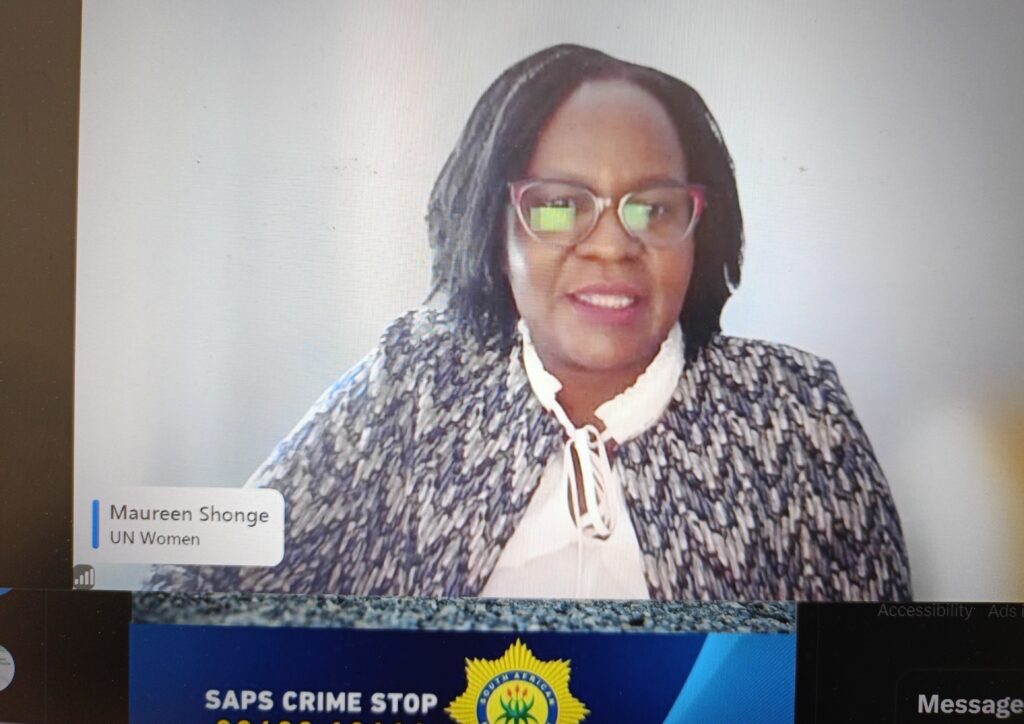
Ms Ester Sharara of Actionaid stressed the crucial need to address vulnerabilities that certain groups – women, children, persons with disabilities, and the elderly – face.
“Early warning and early action are one of the best and cost-effective methods for reducing disaster deaths and losses, yet very few people are protected by them. In Africa alone, 60% of people have no access to early warning information,” she said.
Ms. Sharara said parliamentarians must champion policies and mechanisms that enhance early warning systems for early action ahead of disasters.
“Governments and donors alike are more inclined to respond, instead of investing more on disaster preparedness and anticipatory actions. We, therefore, need an enabling policy and legislative framework to support risk reduction,” she added.
She suggested improving relevant laws and regulations and strengthening their implementation. She said parliamentarians had a role, making relevant laws and providing oversight in the implementation.
Ms Sarah Ahmed from the Planet Vulnerable Forum said heavy rainfall and cyclones reduce crop yields by 58%, putting the vulnerable under food security risk and called for a deliberate policy to ensure food affordability and availability.
She said given that southern Africa is a net importer of food, the food insecurity in the region translates to pressure on inflation and interest rates.
“Food insecurity not only drives food inflation pressure but can also impact the credit account, which creates pressure on interest rates,” she said.
She said national and regional institutions should ensure that credit finance and development assistance are used for the intended purpose, like capacity building, risk management, early warning systems and having liquidity.
Ms Mundilo said the inputs from the Standing Committee’s public hearing session highlighted the critical importance of continuously engaging citizens of the region to enhance accountability and ensure inclusivity in socio-economic development.
“The submissions particularly emphasised the need for coordinated regional action on food security, climate finance mobilisation, and disaster preparedness which are all crucial to building a climate-resilient future for the SADC region,” she said.
The FANRCA committee will move to submit their recommendations to the 56th SADC PF Plenary Assembly scheduled for December in Zambia.






